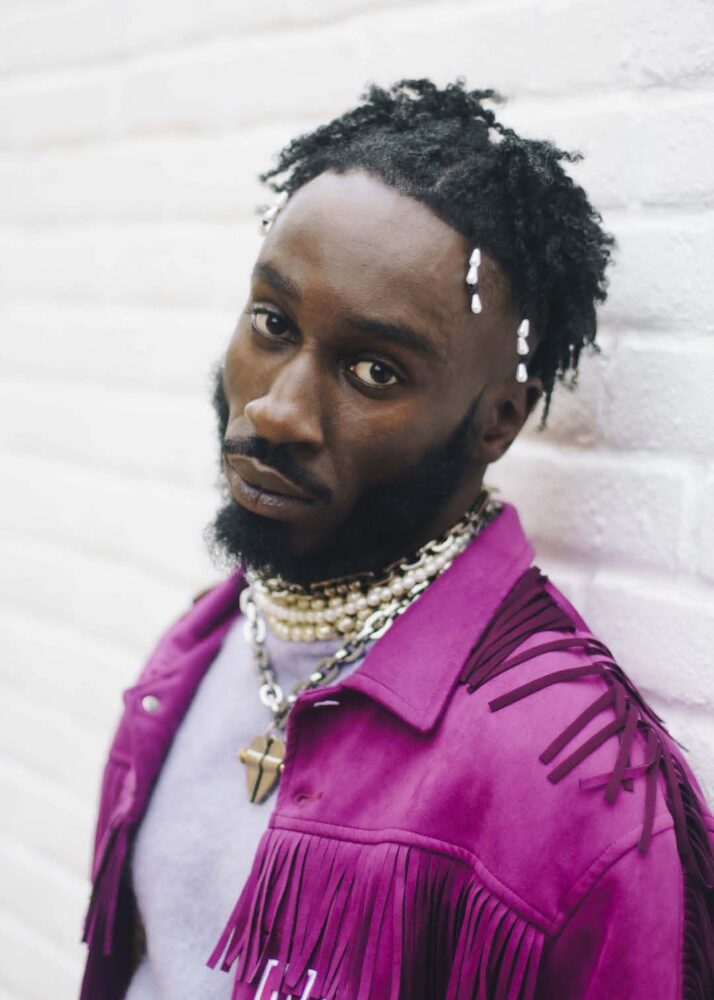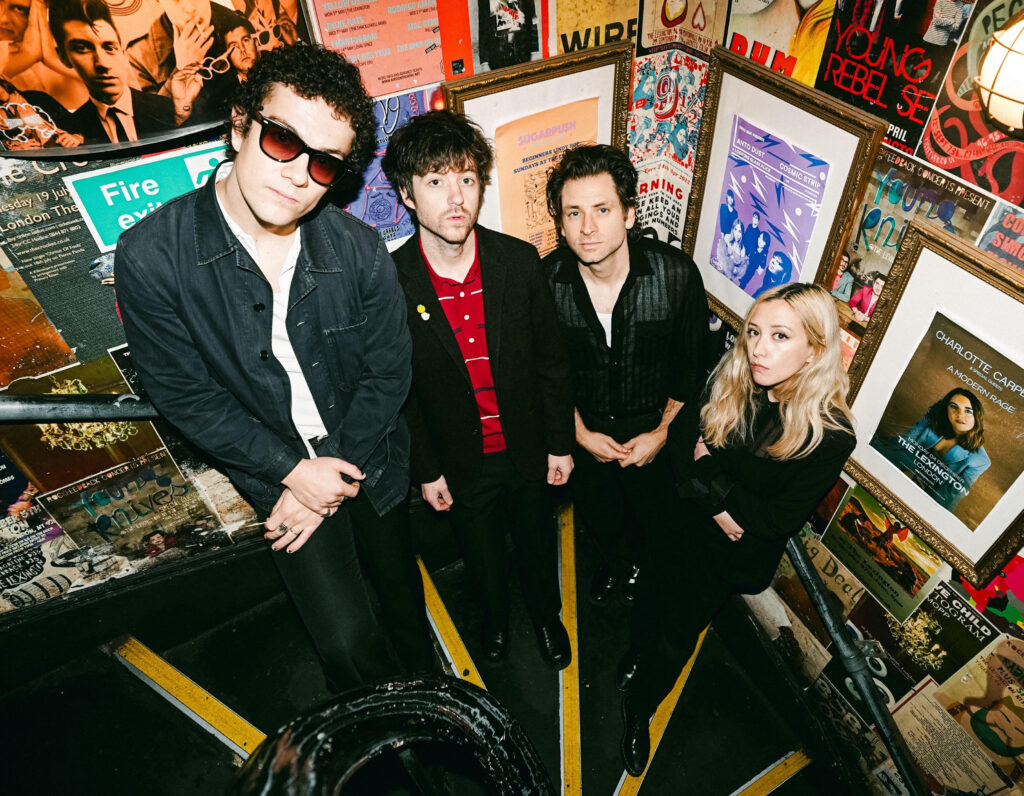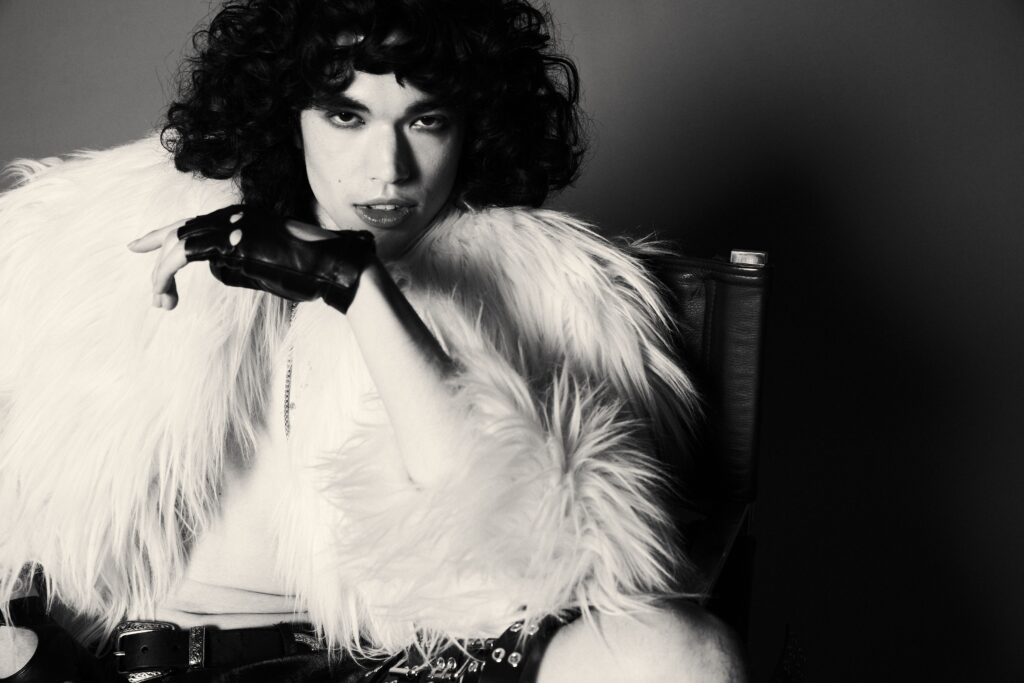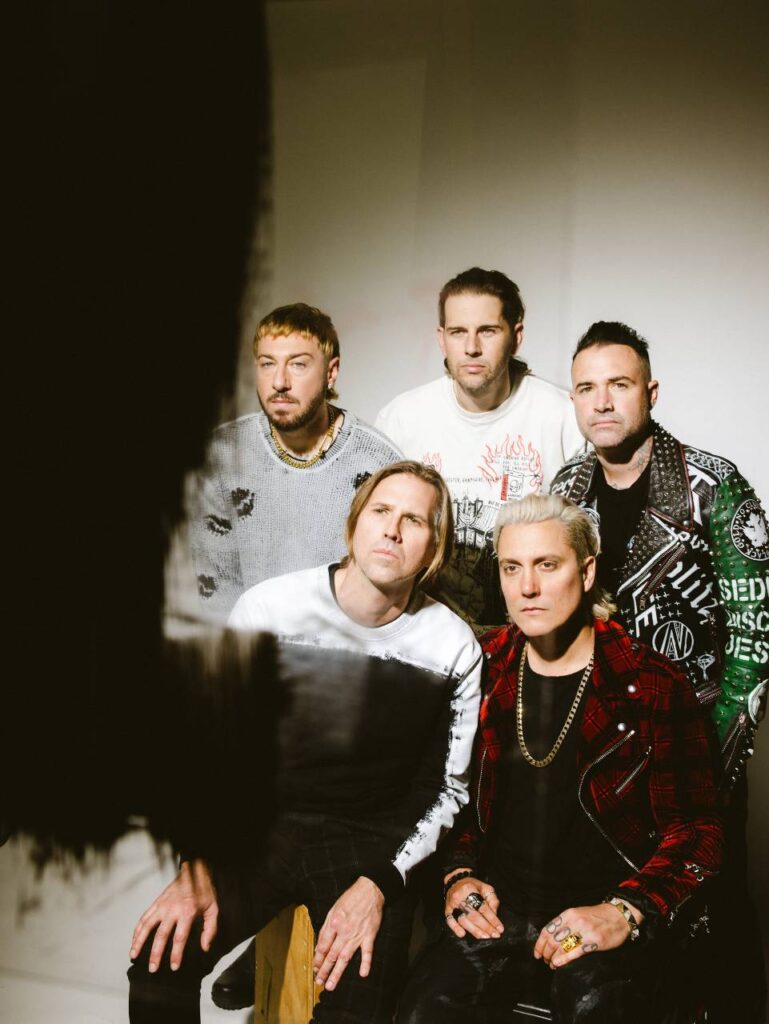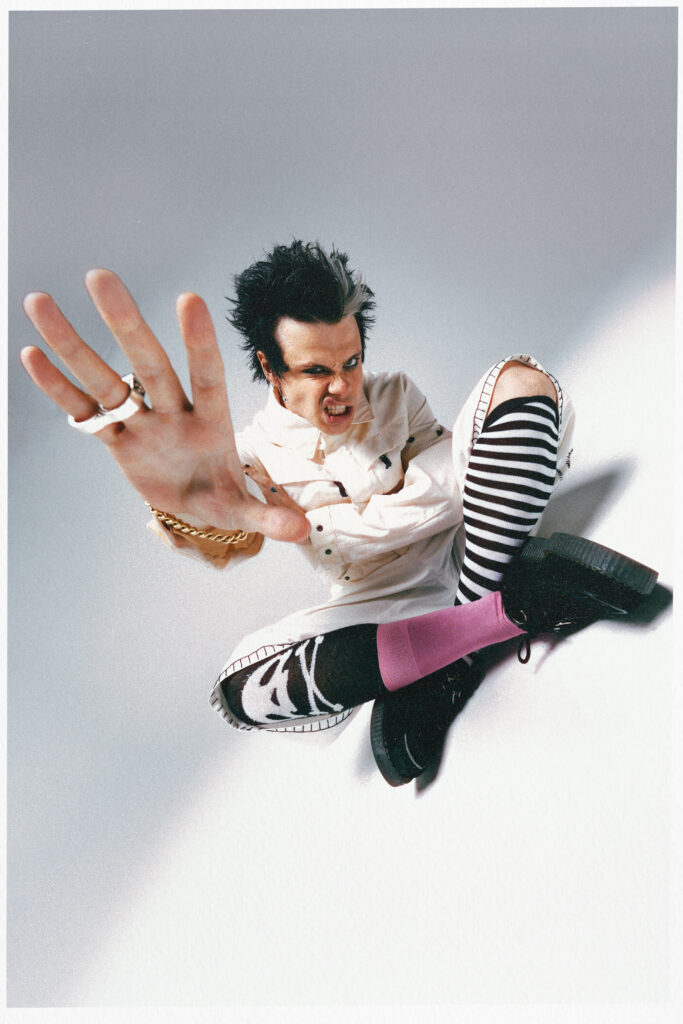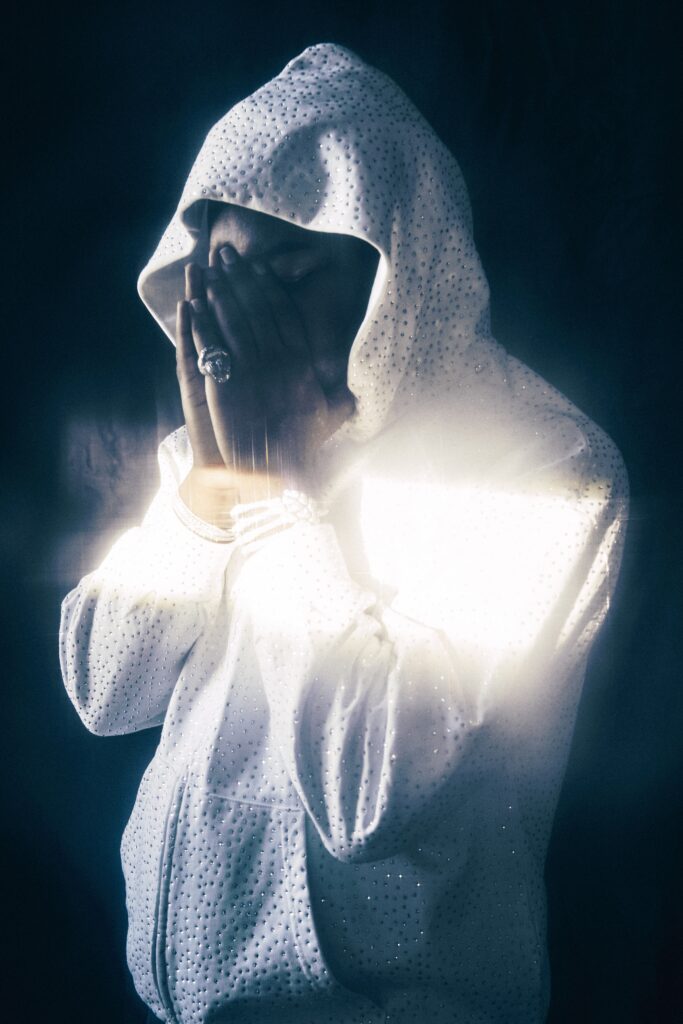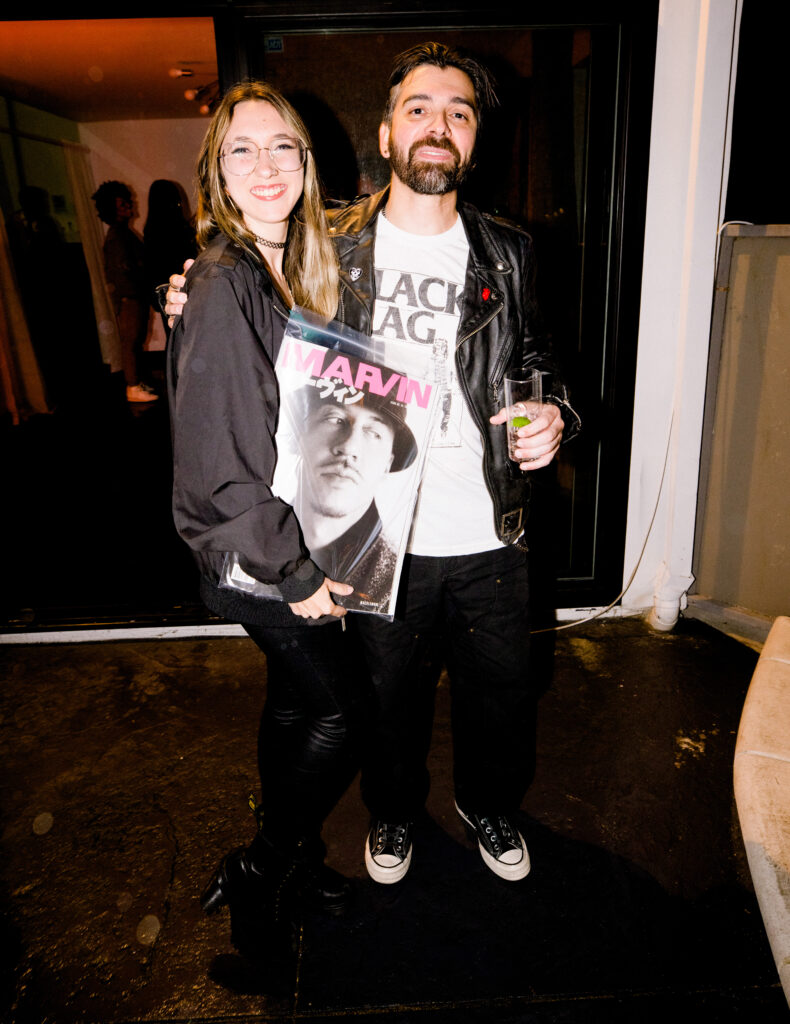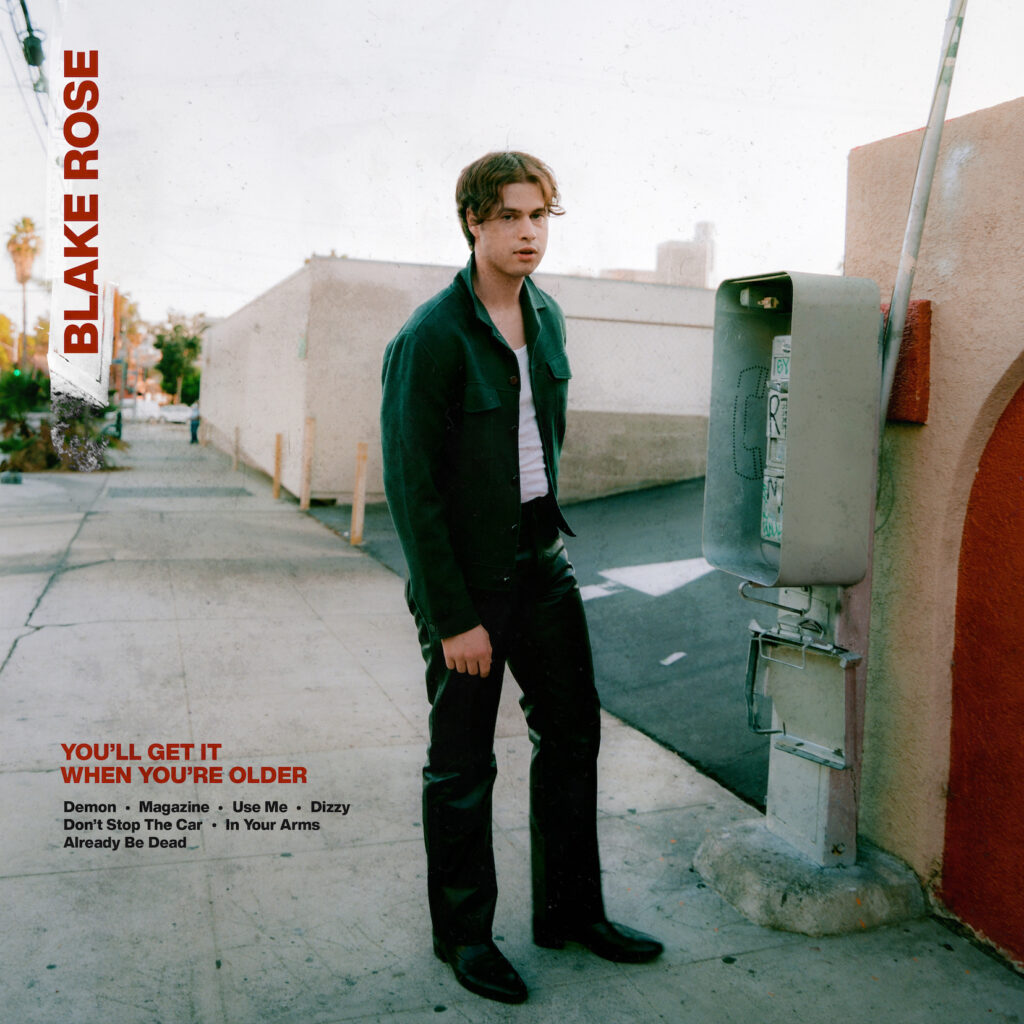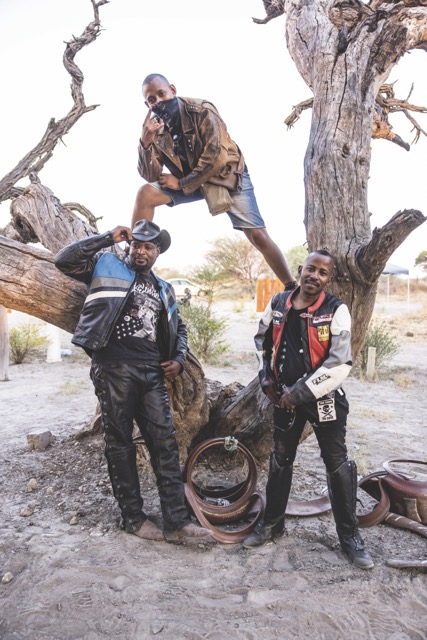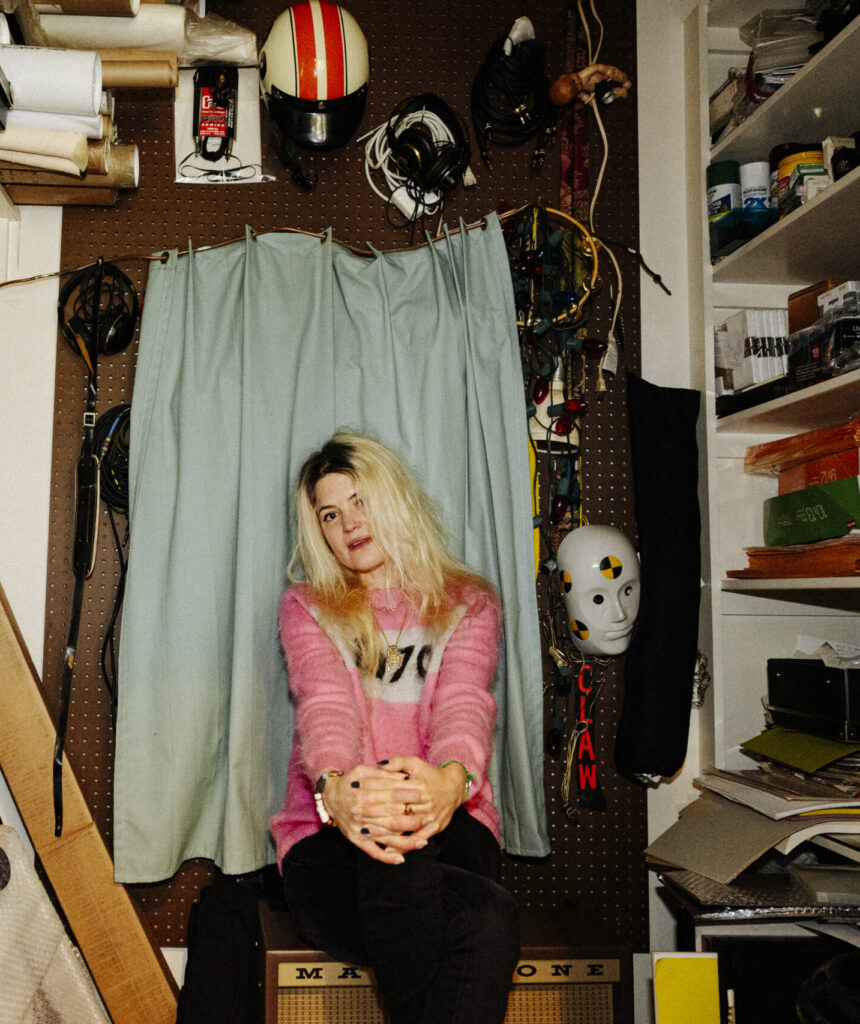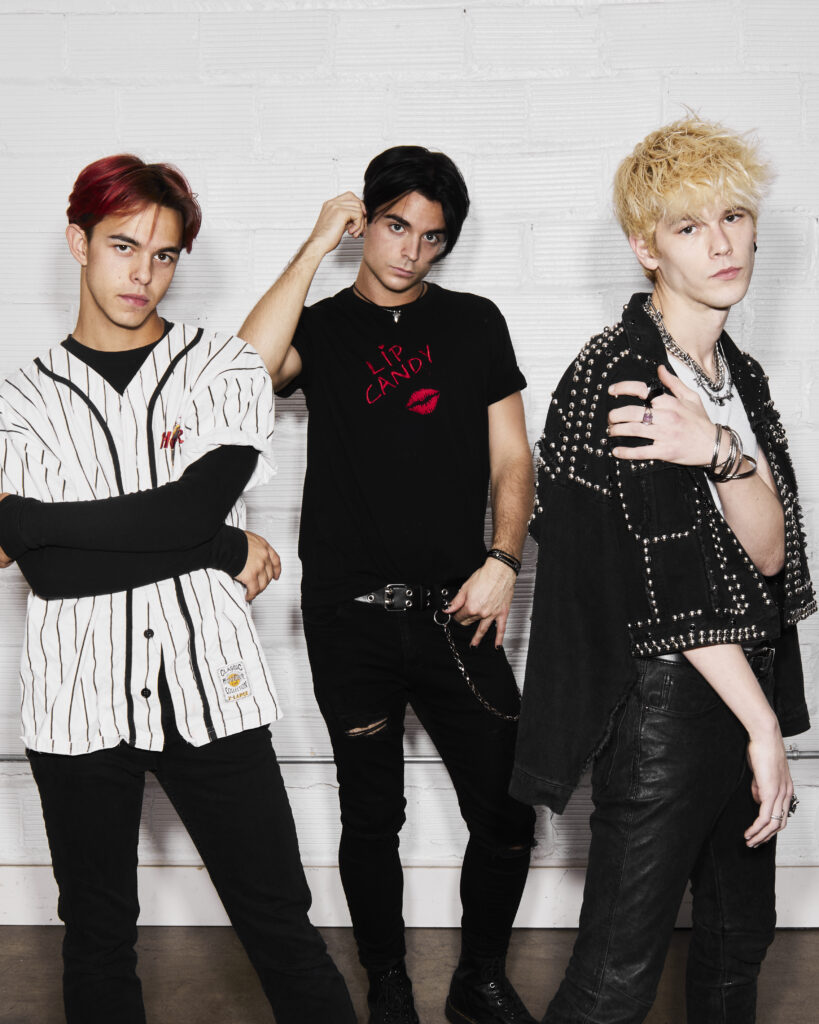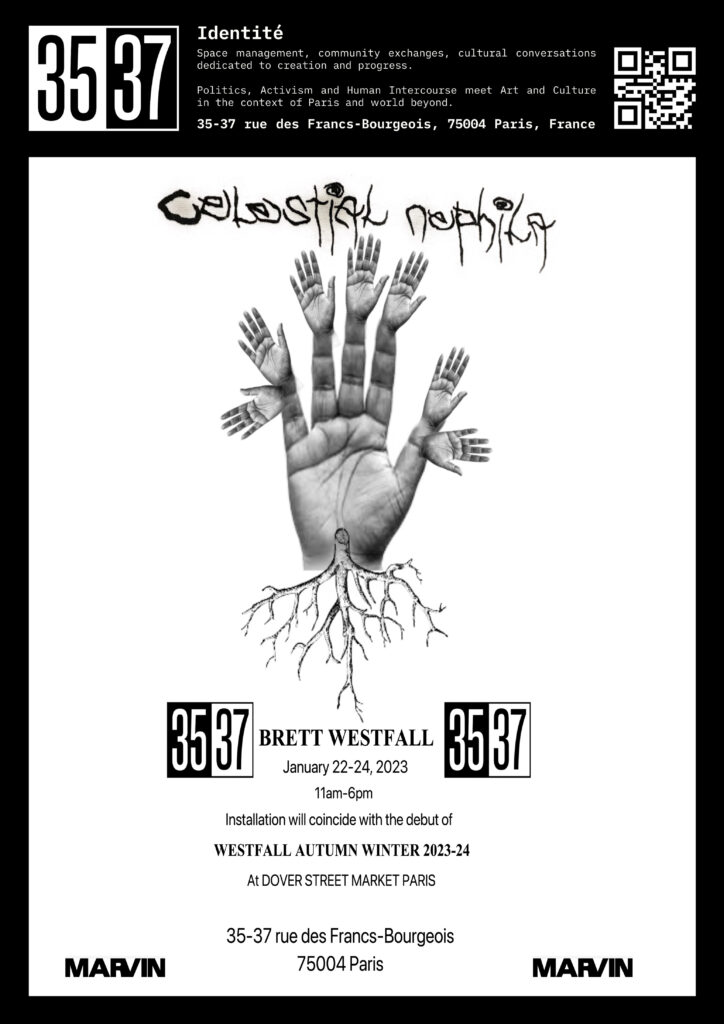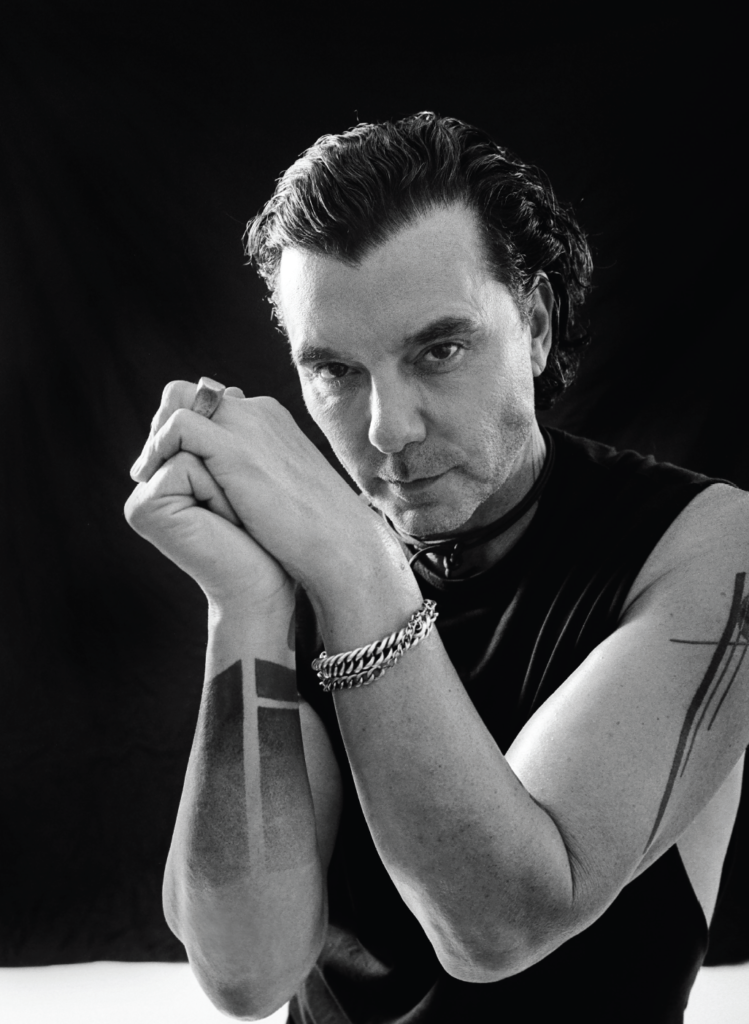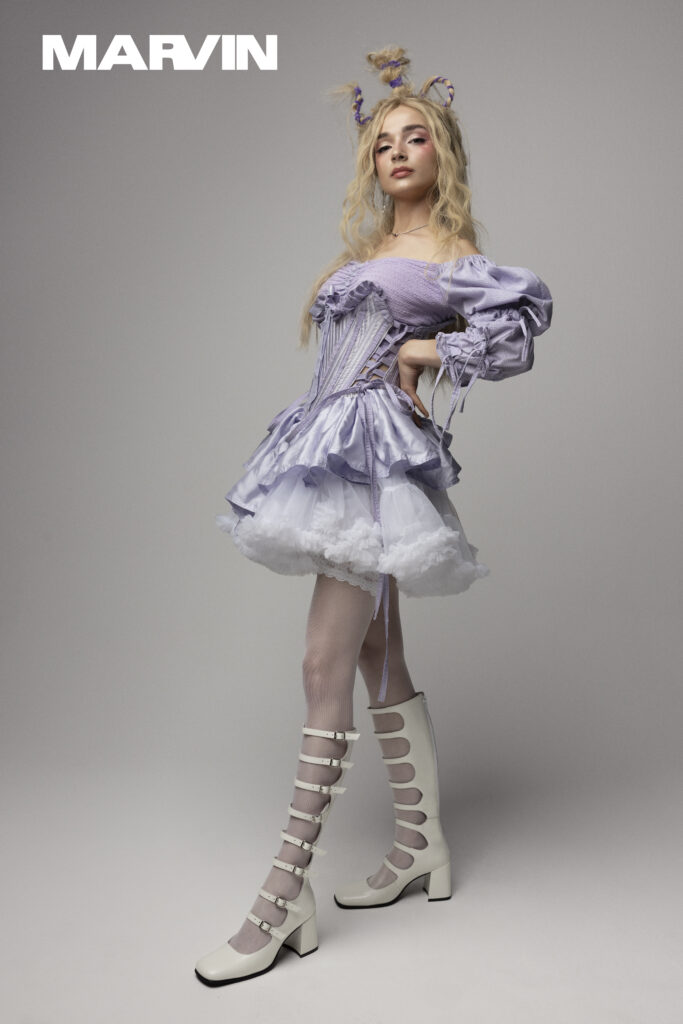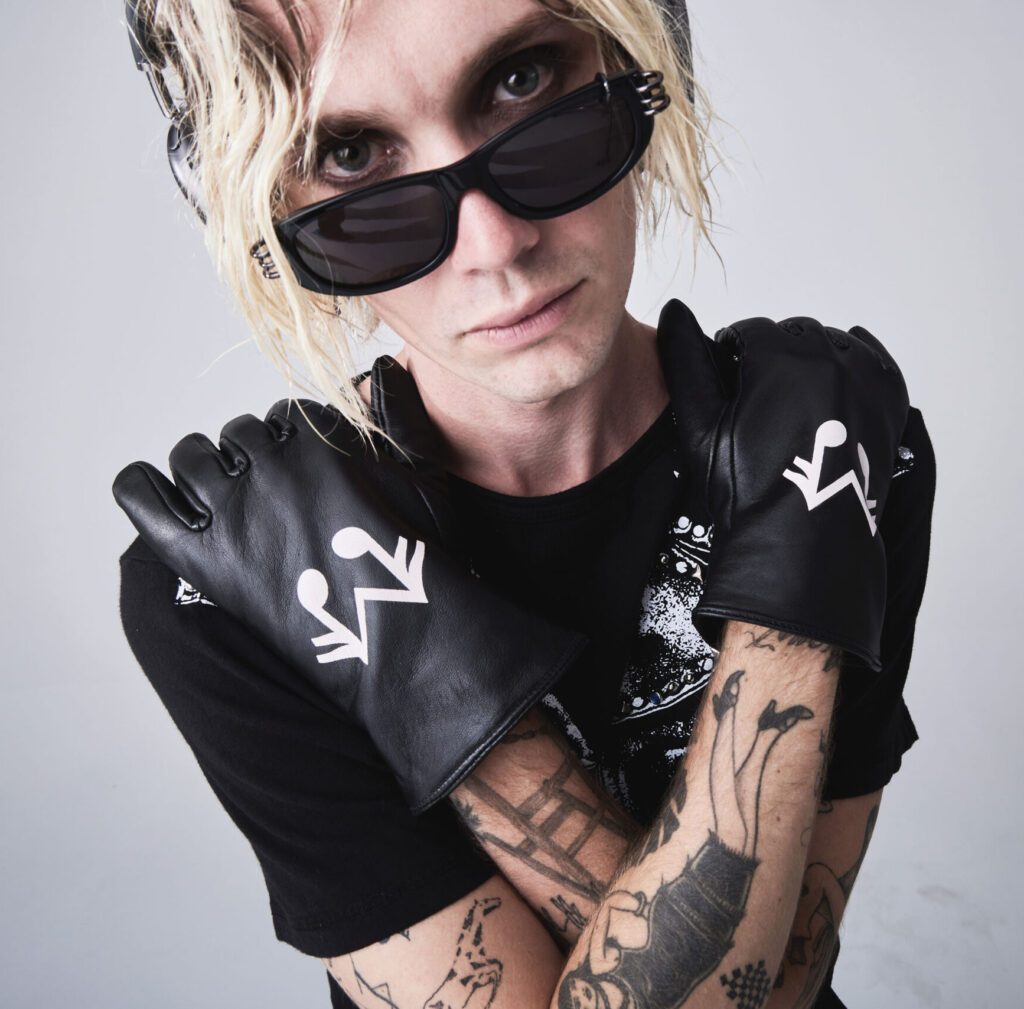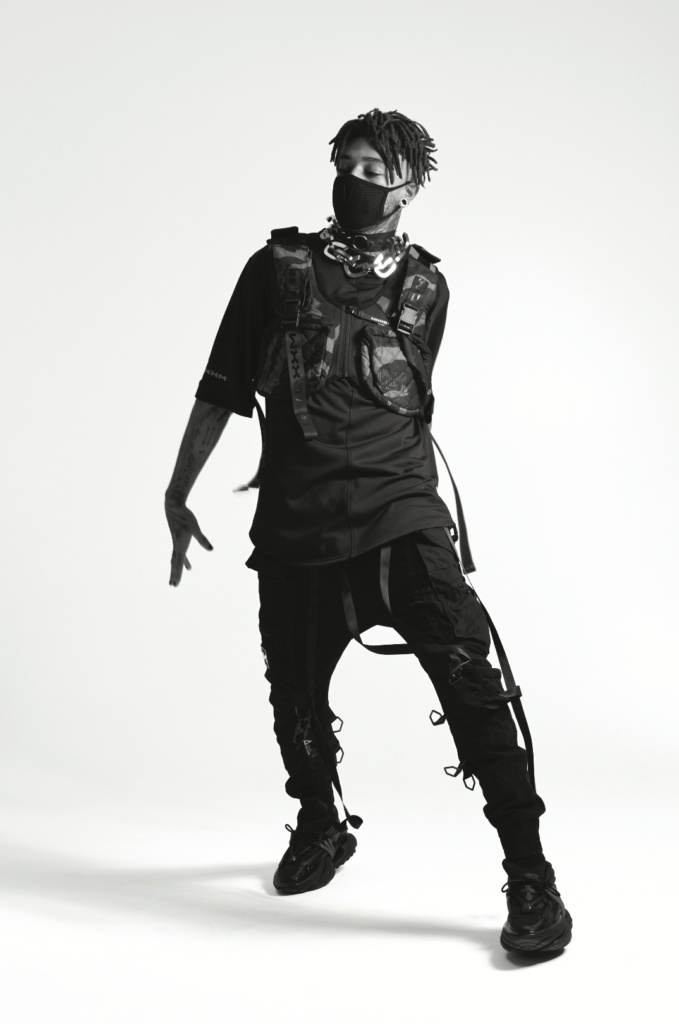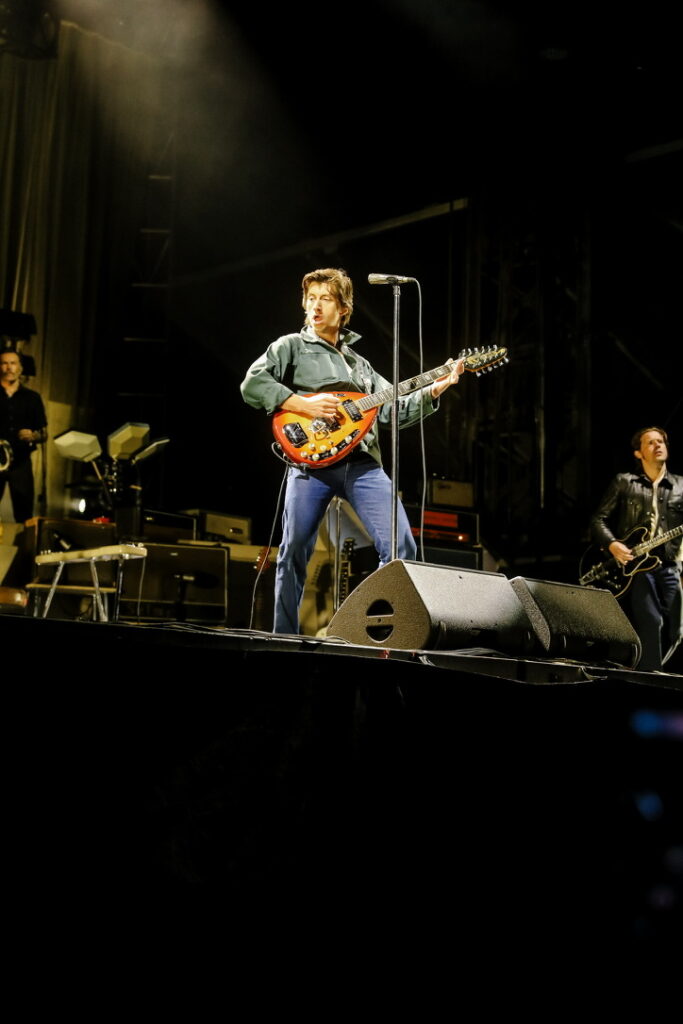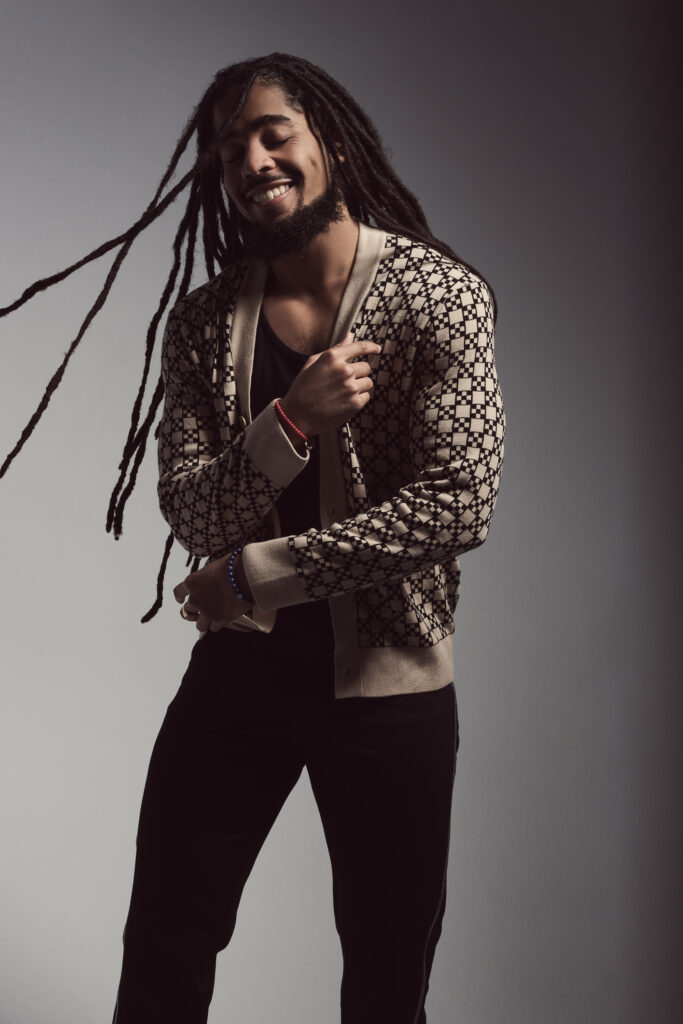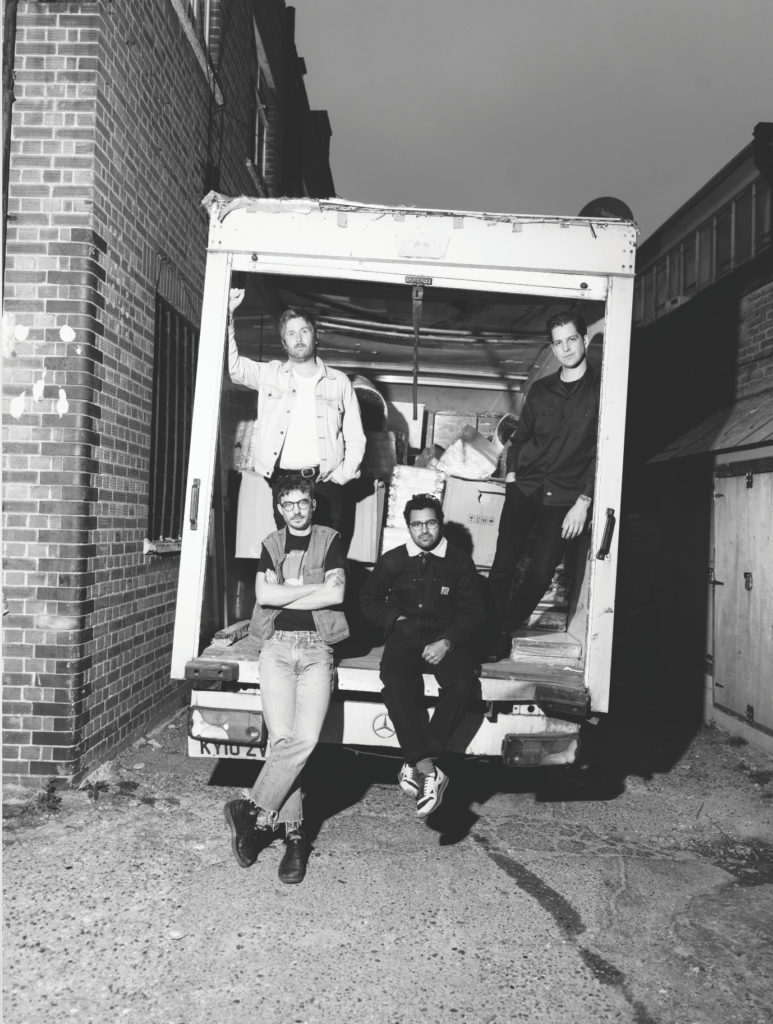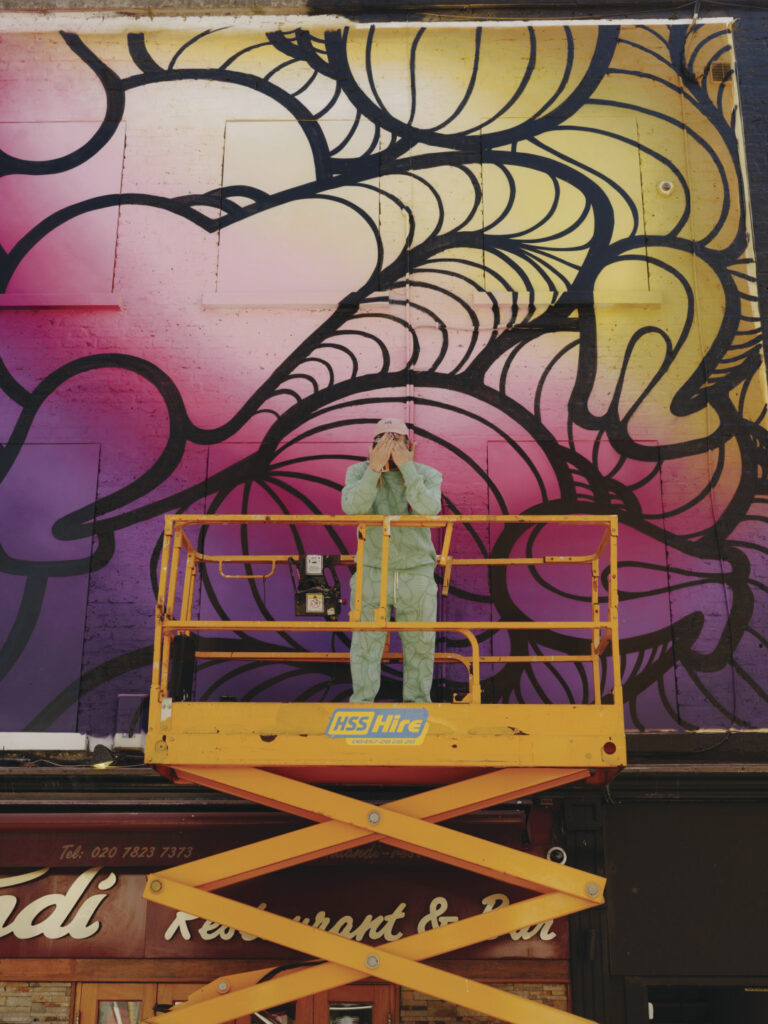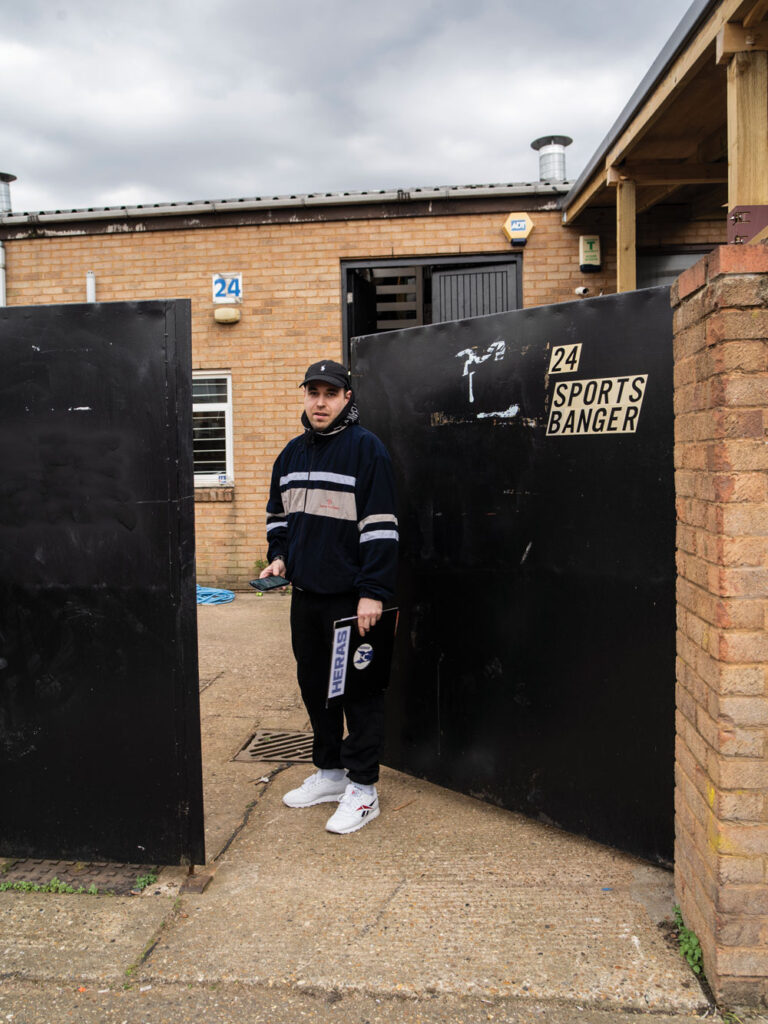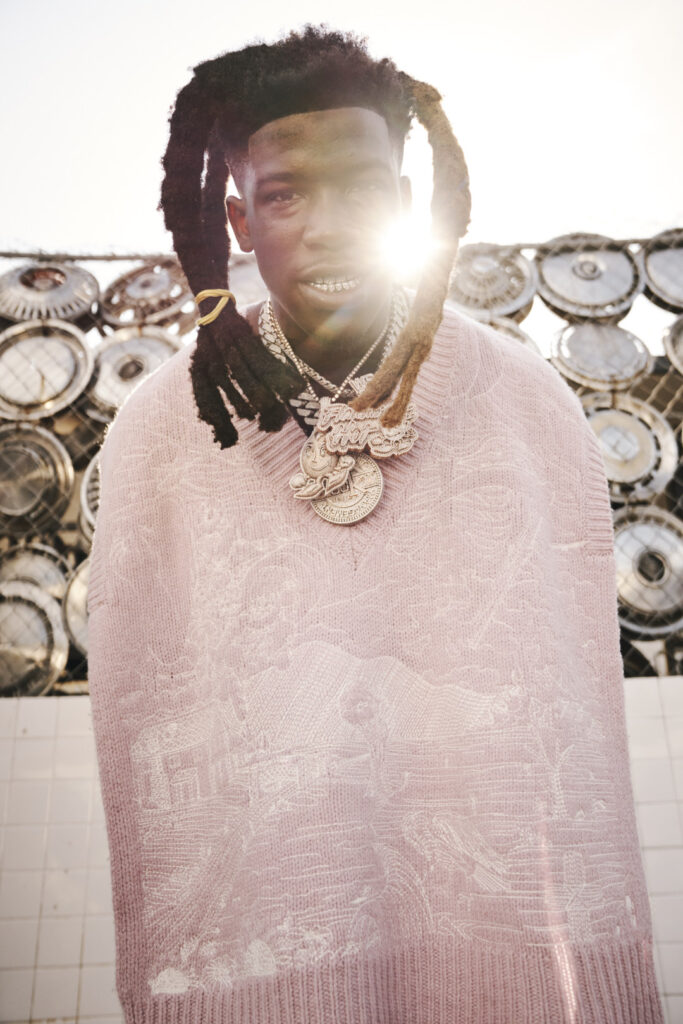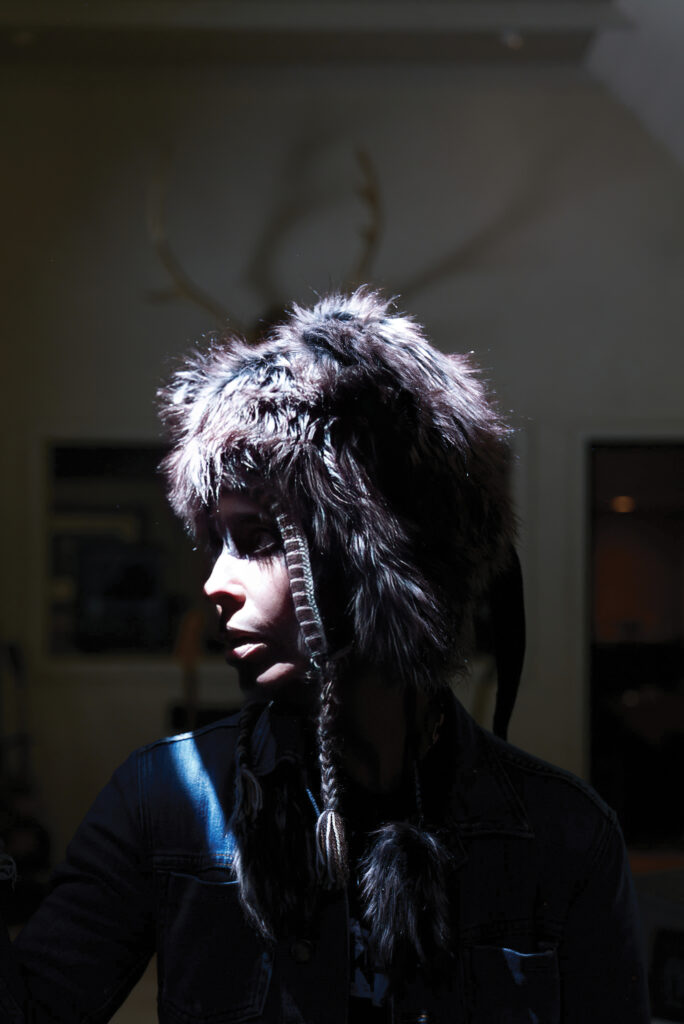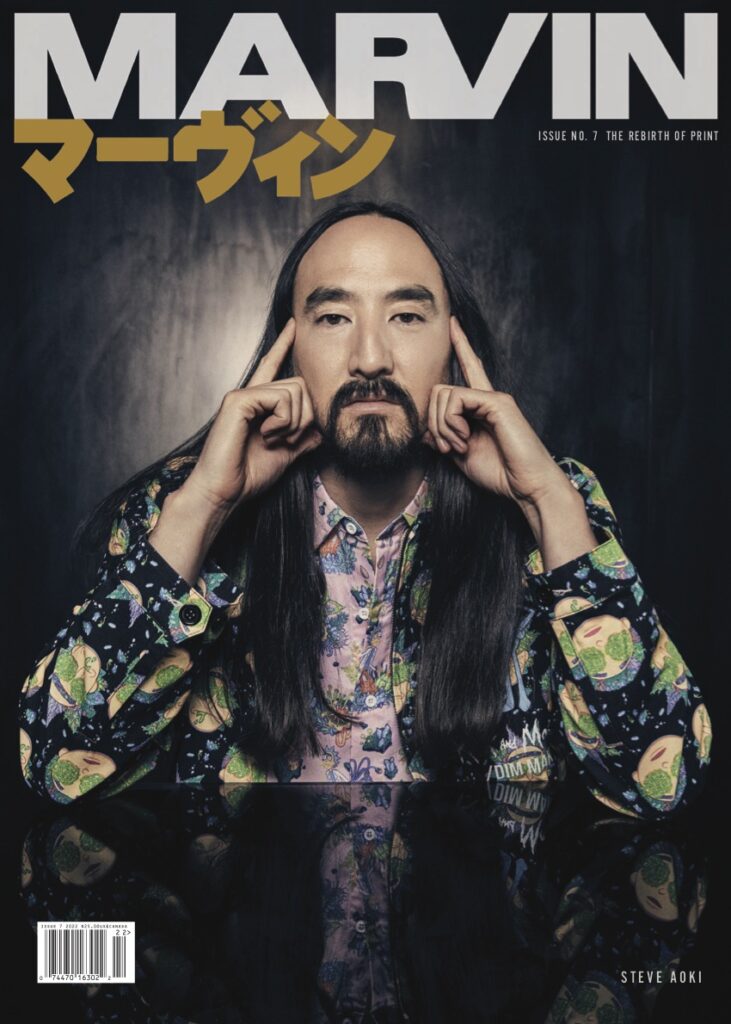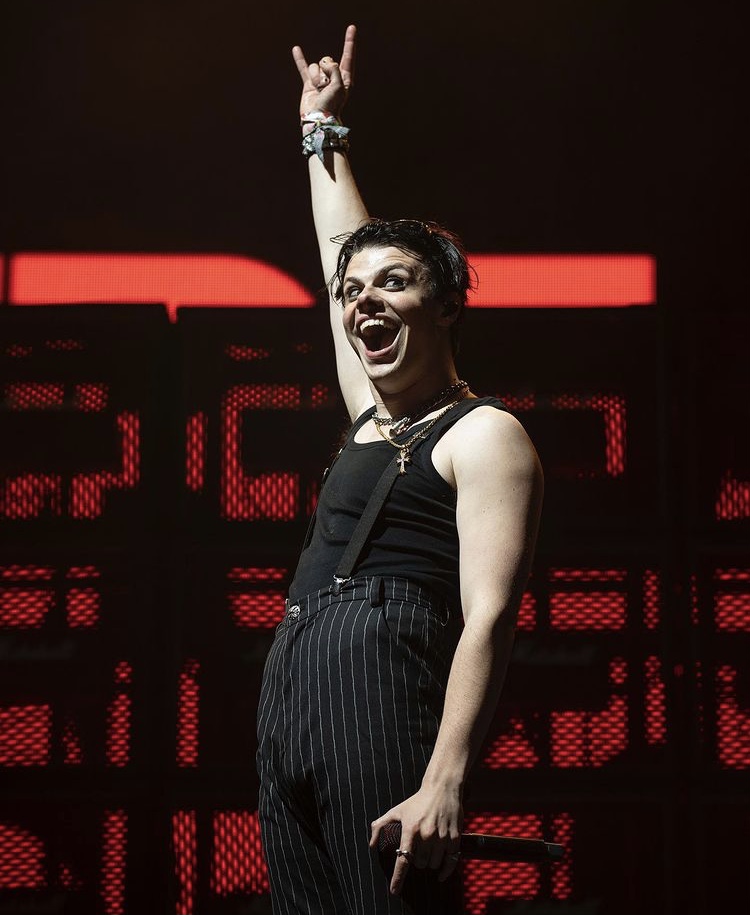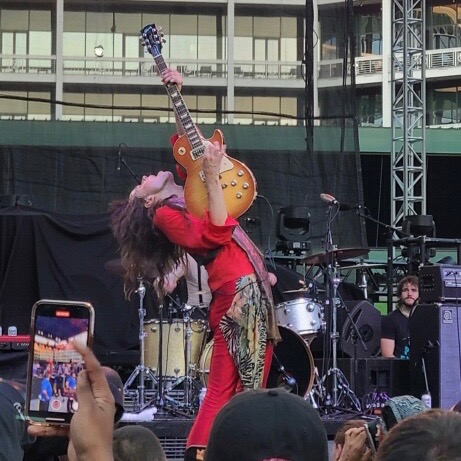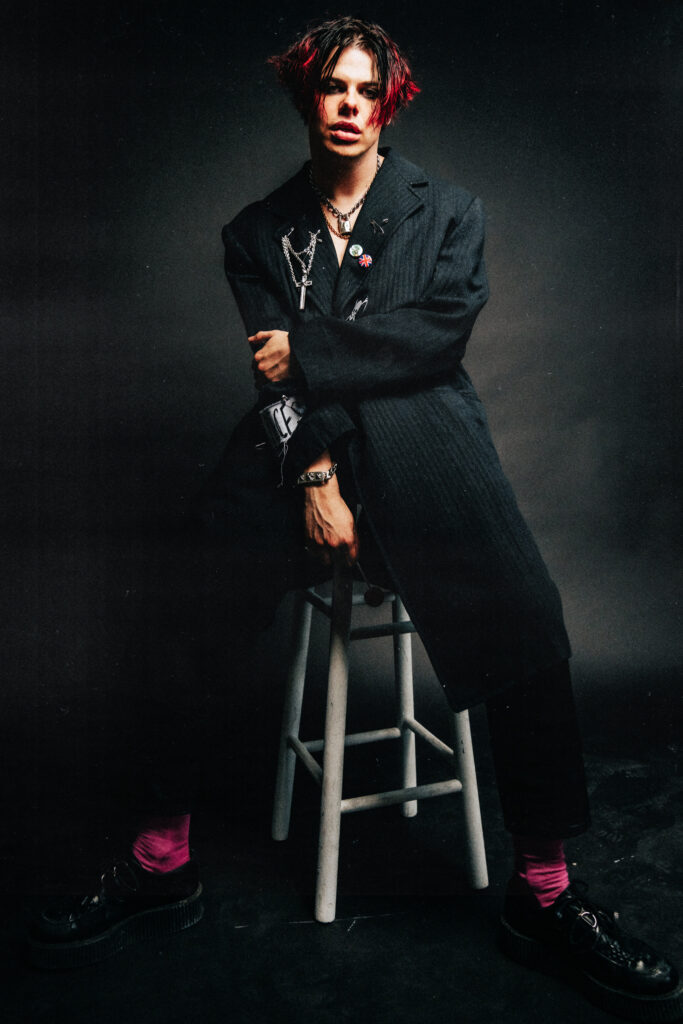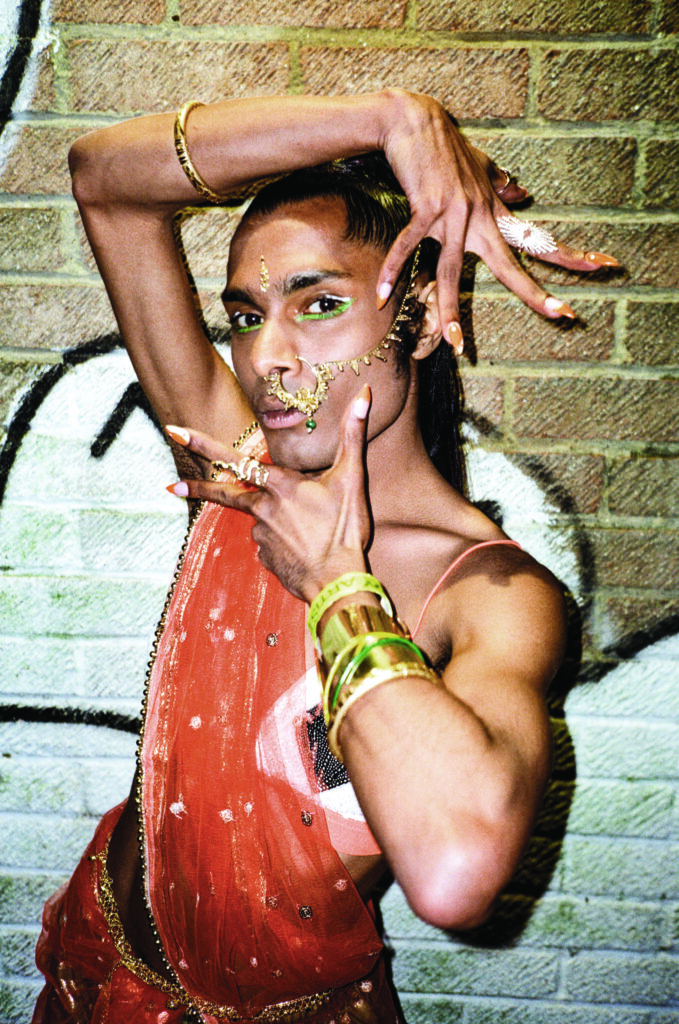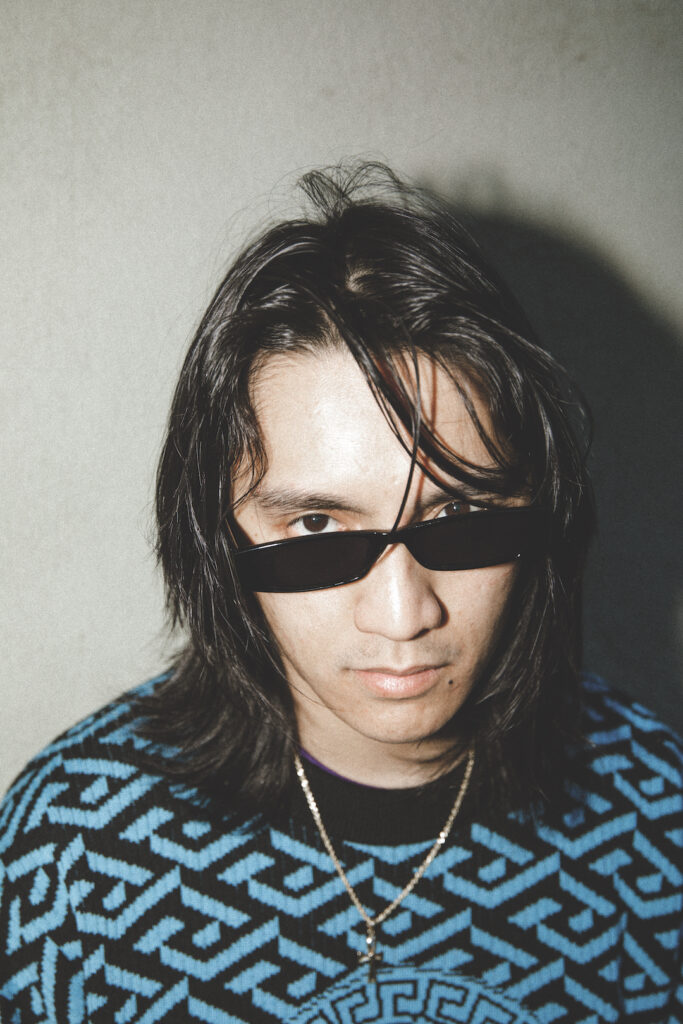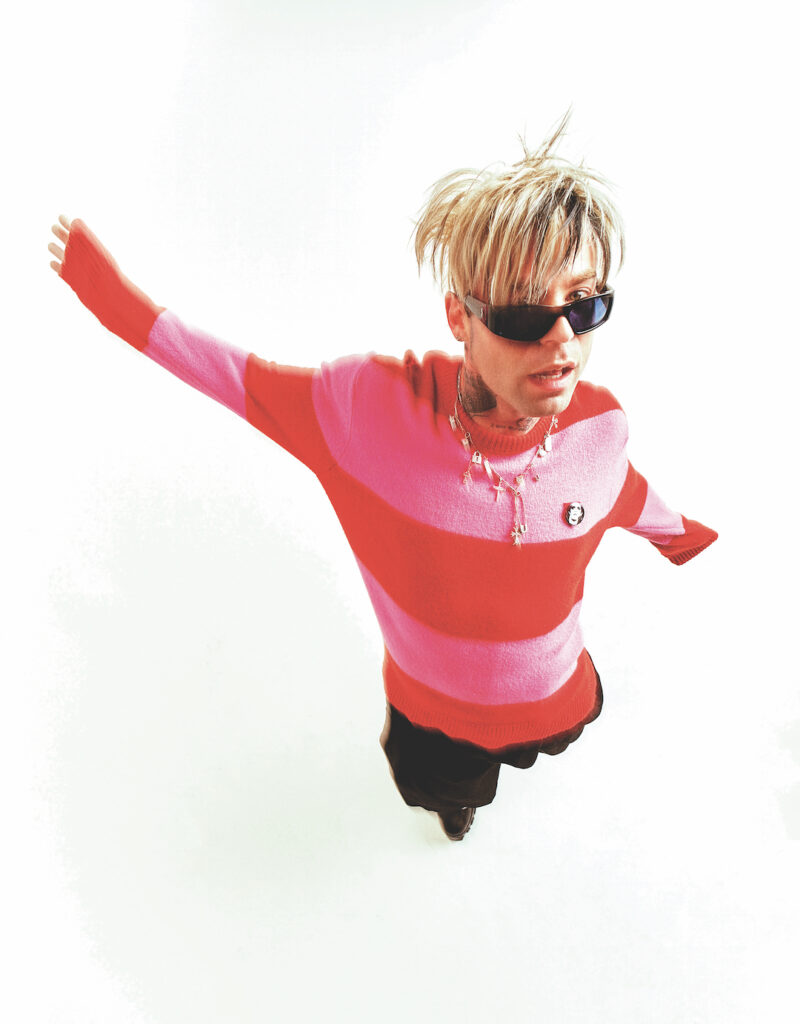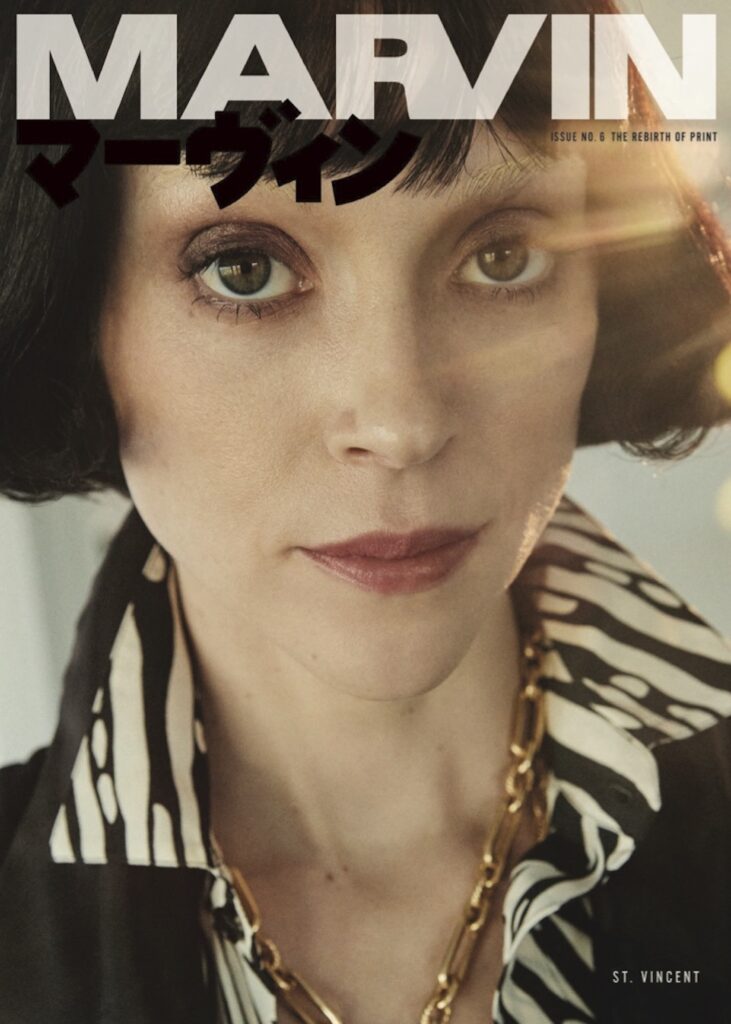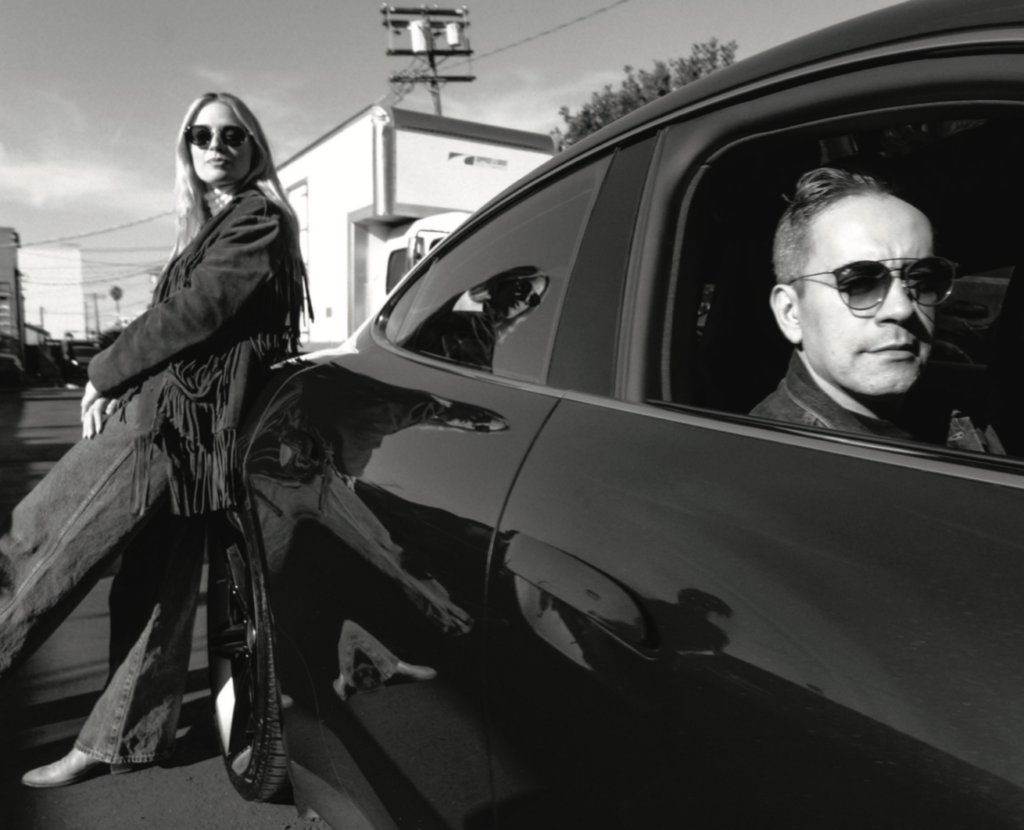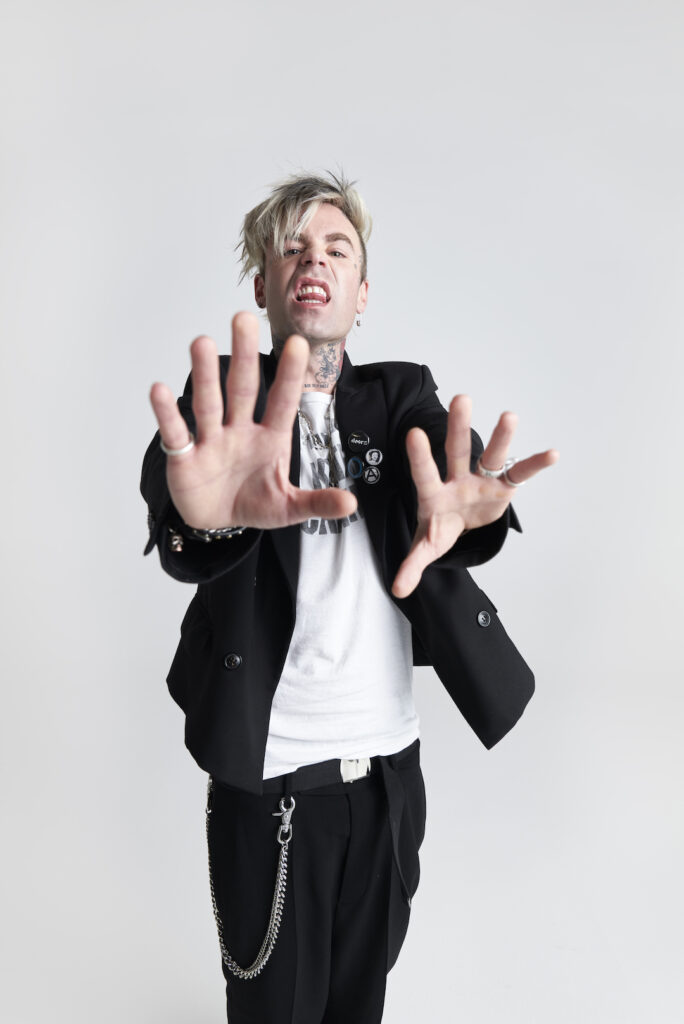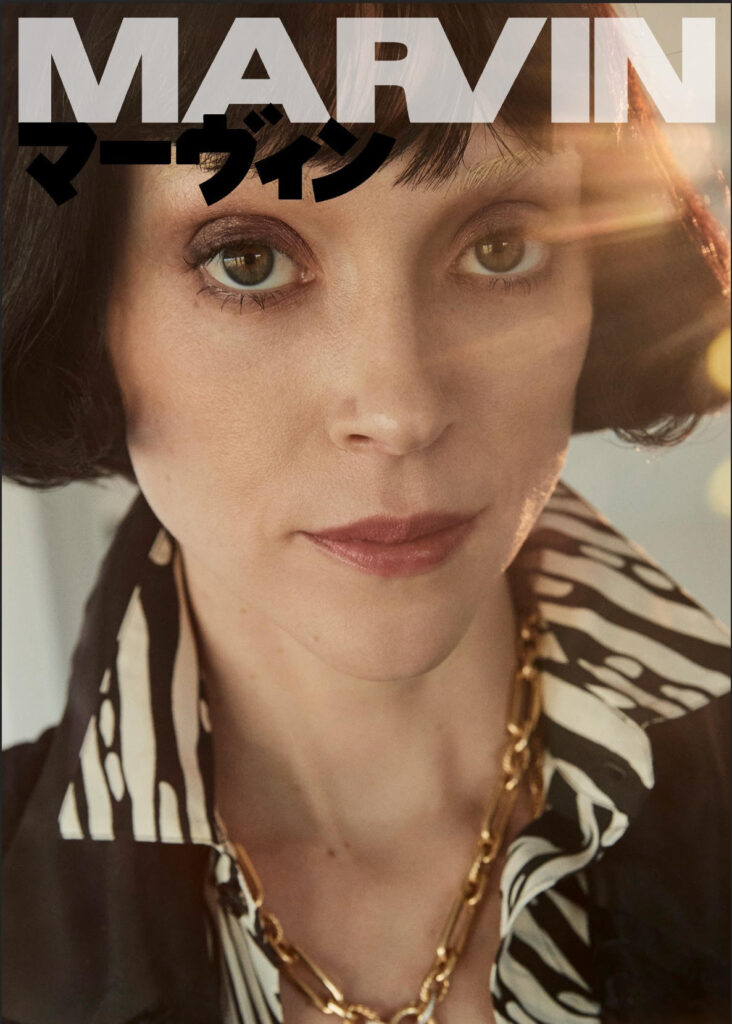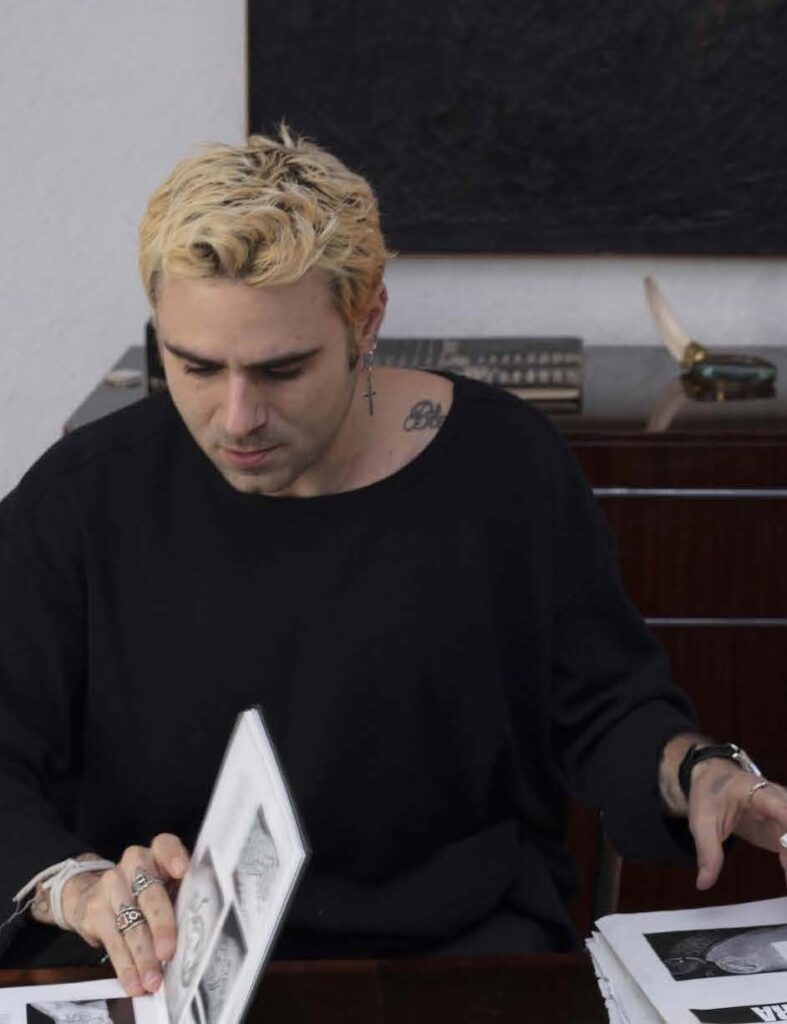British Musican Kojey Radical Breathes New Life and Energy into His Music, Everything He Touches
Words by Clare Considine
Photography by Ibro Adewole
To experience British musical artist Kojey Radical live is to receive an infectious and life-giving hit of energy. When he dances, his shoulders shimmer and flex like they’re delivering the tune. When he raps, each individual word hits your brain like a hailstone. On Zoom? He’s chill.
We chat as the Hoxton, London native gets ready to head out to the gym from his new home in Essex. He takes a moment to think before answering each question. He talks slowly and with purpose; his laughter comes only when he really means it. He controls the pace and the energy. Which all goes a long way to explaining the fact that we’re meeting to chat about his debut album, almost a decade into a long and illustrious career.
Kojey Radical, born Kwadwo Adu Genfi Amponsah, burst onto the music scene back in 2014. He brought the arch renaissance energy of time spent in tutorials at London College of Fashion and open mics on the spoken word scene. But he teamed it with the idiosyncratic London magnetism of a lifetime of grime as background noise. He garnered two MOBO Award nominations within two years. He made his mark swiftly and seemingly effortlessly.
Fast-forward seven years, four EPs, countless collaborations and one pandemic, and Kojey is finally ready to release Reason To Smile. He is not a man who bows to pressure or the fear of missing some perceived momentum. He waits until the time feels right and that time is now.
Reason To Smile is an album in its truest sense. Although most of its 15 tracks come in at under four minutes, this is a complete work rather than a pick- and-mix of singles. If it is the Kojey we know and love, it is him at his most seasoned and adept: leaning into his many facets and conducting them to cohesive harmony. We hear the organic and timeless sounds of old soul, 80s funk and Fela-era Afrobeat fused with hard- edged rap and dancehall. Co-produced by Swindle and day-oner KZ, the former brings his signature jazzy flourishes whilst the latter adds what Kojey describes as the “bounce.”
So how is the 28-year-old feeling about popping his studio album cherry? “I get nervous when people say they’ve heard it,” he says, perhaps even surprised at his own feelings. “Things like that you always wanna keep near and dear to yourself.”
Maybe the nerves are born of a laying bare that hap- pens on the album. Kojey has always been comfortable eschewing hyper-masculine topical tropes but here he really lets us in. There’s space for specifics amongst the big ideas: details of his childhood, his dabbles with a darker life, hints at PTSD. “I think where I’ve always been based around my creativity, people have separated me from the stories that I was telling,” he explains. “With this album I wanted to give people a deeper insight into who I was, how I grew up and the type of things I think about.” We’re even treated to musings from his Mum in a thick Ghanaian accent, peppering the LP as interludes.
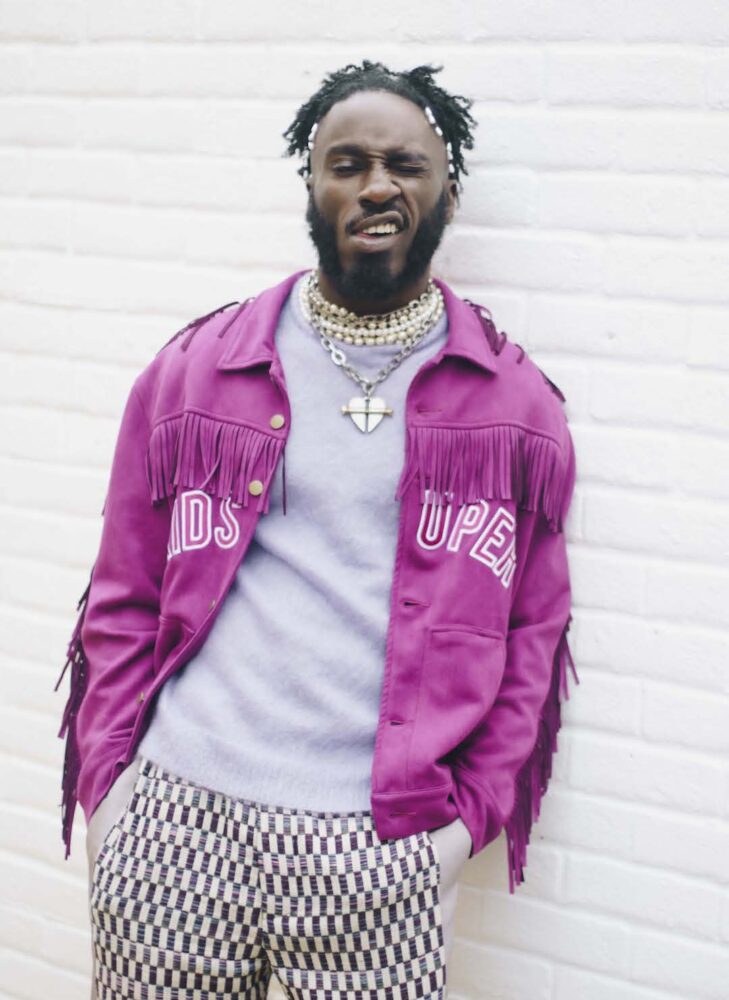
The titular opening track finds a cup-half-full Kojey. Perhaps, in no small part, due to the fact that he recently became a father. “It kicks you into gear a bit more,” he laughs. “And it makes you see the world differently.” So we meet a man at a crossroads in life: he is at once father and son.
The music scene should count itself lucky it got Kojey: he could have been many things. Normally praise heaped on women stars, he is undeniably a Triple Threat: he sings, he dances, he gives good face. Or put in terms normally reserved for white males, he is an auteur. When not choreographing, he’s directing his own videos and illustrating album covers.
Despite signing to Atlantic Records in 2019, he is fiercely independent. He’s had the same core team since the start, with his sister as his manager. “I only work with my team,” he explains. “I did about six years independent. That includes all the world tours and soldout shows. We did that. We created the value that Atlantic eventually saw.”
So, as always, Kojey controlled the pace and bided his time waiting until he found the right home. “Me and Atlantic built up a good relationship over the years,” he explains. “There was no way I was ever gonna be in a record label situation where I had to compromise myself.”
Put simply, Kojey wants the freedom to make stuff. “I was illustrating from when I could hold a pencil and dancing from when I was nine,” he recalls. “For most of my childhood I was chasing one form of creativity to another. Music was probably one of the last things to find me.”
Kojey describes growing up in a house with dial-up internet and an attentive Mum who limited his screen time. Discovering hard-to-find music came with an exotic thrill. “When you grow up in the Ends, there’s a dominant sound. Grime was everywhere. I didn’t have to try to hear it,” he explains. “So I listened to every- thing. From R&B and hip-hop, new jack swing, a lot of rock, indie, reggae, ska, Japanese trip hop… for me music was escapism.”
He has an old head energy which makes it hard to picture him as a little boy. “I was just always doing my own thing in my own world,” he recalls. “I preferred hanging out with the less popular kids. We talked about stuff I found fun like animation, robots and teleportation.” So he wasn’t concerned with trying to impress girls? “That was gonna happen anyway,” he shoots. A perfect snapshot of the yin and the yang, introvert and extrovert of the man we meet today.
And Kojey likes contrast. It’s his weapon of choice in his art. Back in 2018 he made “Soak It Up” with garage legend MJ Cole. Over the sweet boing and bop of quality UK garage, he muses on the nature of loss. In the devastating video a family mourns the death of a teenage boy. “Juxtaposition is startling,” he explains, pointing to “Can’t Go Back”, his single from 2019. “That was a song about depression and suicide and it’s got some of the happiest trombone solos you could possibly hear.”
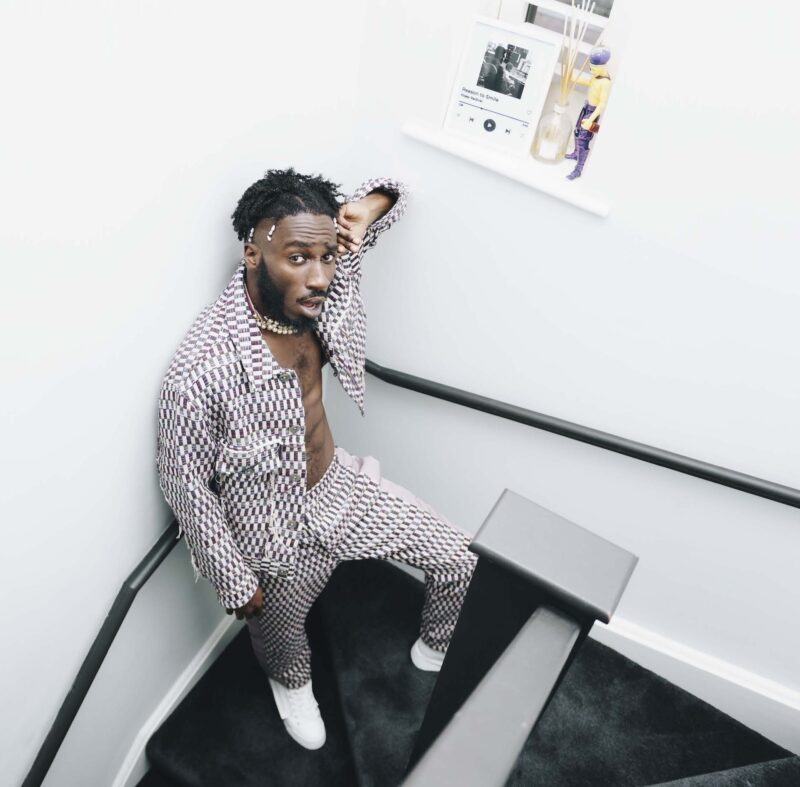
Most comfortable in the gray areas, Kojey cites influences like: “James Brown, Curtis Mayfield, Sam Cooke, a lot of psychedelic music. And also really authentic, hard-hitting hip- hop, just space, bass and bars.” This natural curiosity teamed with an ability to move between sounds is something that he is clearly proud of: “That’s always been my gift in a way,” he says. But perhaps it is also the reason why the press love to call him any and every variation of a sleeper hit. “I exist and I don’t exist at the same time,” he laughs. “The conversation of being underrated has always followed me.”
Lucky for Kojey, his lack of concern with fame for fame’s sake feels very genuine. He is doing this neither for the ‘gram nor the dough. His 2020 banger, “Where Do I Begin” opens: Man upon a mission/ Still a martyr for the vision. I ask how he feels about the age-old industry pressure of breaking America. “America’s a big place and that’s a lot of people to say hello to,” he replies.
That’s not to say Kojey doesn’t care about how he’s received. His career highlight? The first time his mum saw him play live was in a packed London club called KOKO. She crops up at various pivotal moments in our conversation, just as she does on the album. Her approval is clearly the gold standard.
I tell Kojey I’ve interviewed lots of artists, from Moses Boyd to Novelist, who’ve talked about him. “The admiration from my peers has never escaped me,” he beams. “Because I genuinely do this for the love. And when you do it like that, the energy is different.” His collaborations range from guesting on the latest Sons of Kemet to Michaela Coel’s spoken word on his song “Super Human” to making driving grime with Ghetts for a Top Boy soundtrack.
With his flamboyant style, twinkle toes and wont to croon, Kojey is certainly an outlier, but still an essential player on the UK grime and rap scene. Which is thanks, in no small part, to his exceptional rhythm and flow. On his recent Hardest Bars Freestyle for Link Up TV—a baptism of fire for any UK rapper worth their chops—he spits: Stormz said I’m nice / Kano said I’m nice / Wretch said I’m next / Ghetts said it twice.
He is also a master of building genuine connec- tions. In an age of dialed-in guest verses, Kojey is old school. He likes to get in the studio with people to see what magic happens. “It can only be done in an organic way. I say no to so many things.” So who would Kojey still love to work with? With his whiplash flow and political commentary, Kendrick comparisons are inev- itable. And while Kojey is a big fan of the Top Dawg Entertainment crew, he explains, “for the most part, if I don’t really know people I don’t long to work with them, I just respect them from afar.” He prefers to make genu- ine IRL connections. “Just wait and feel it out and people will reveal who they really are. You can’t stress it.”
Kojey should probably get You can’t stress it emblazoned on a chain. It may not be the most obvious mantra for a successful musical career but it’s one that’s served him very well. He has created his most accomplished body of work to date; packed with considered collabs, top-tier lyricism and moving musings on fatherhood, self-love and Black excellence. Now all that’s left is to share it with the world.
But that should be easy when he’s already got the only recognition he really needs. The album’s closing words are reserved for Kojey’s mum: “You’re doing very well. I’m so proud of you. You can’t do any more than what you’re doing.”
@kojeyradical
